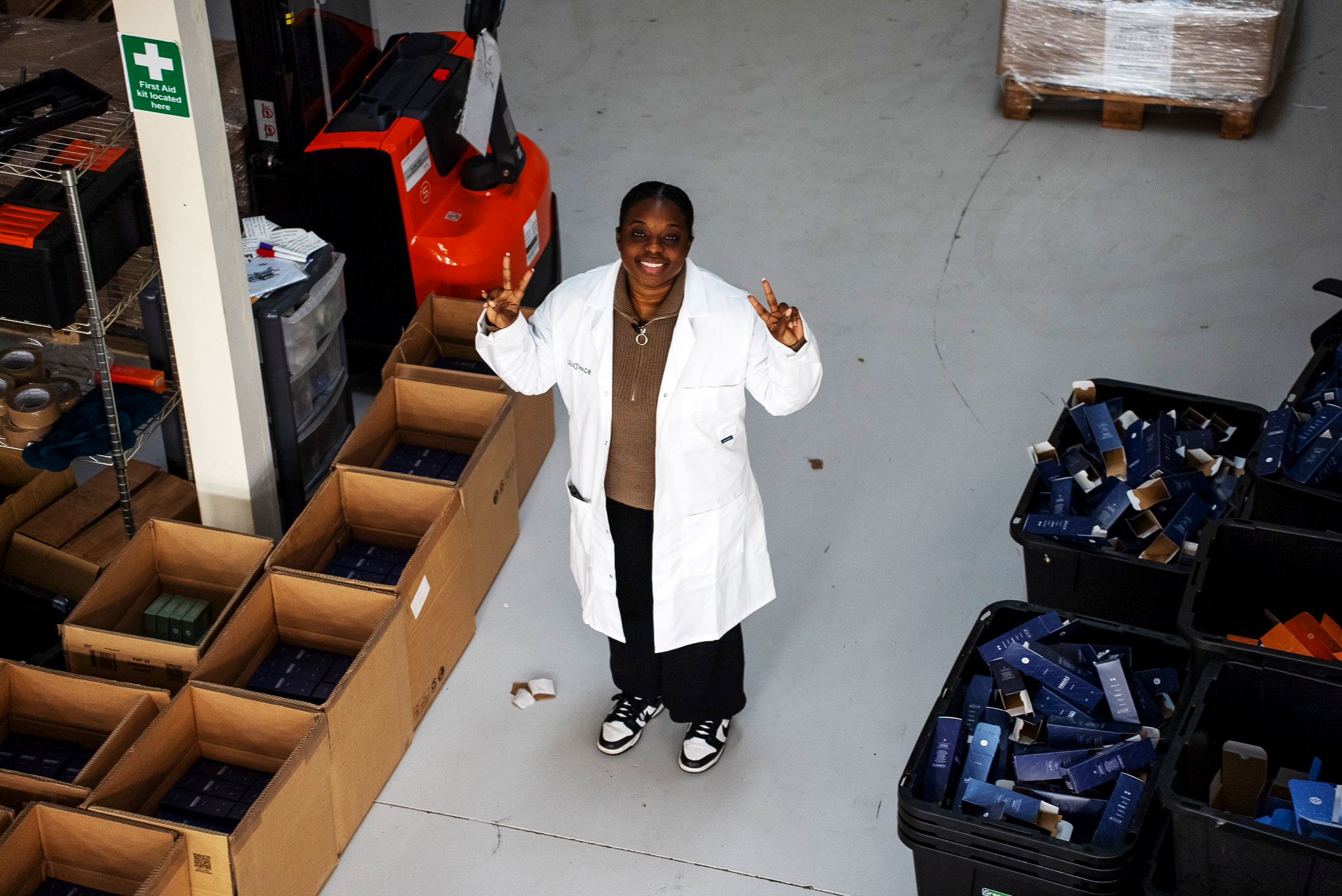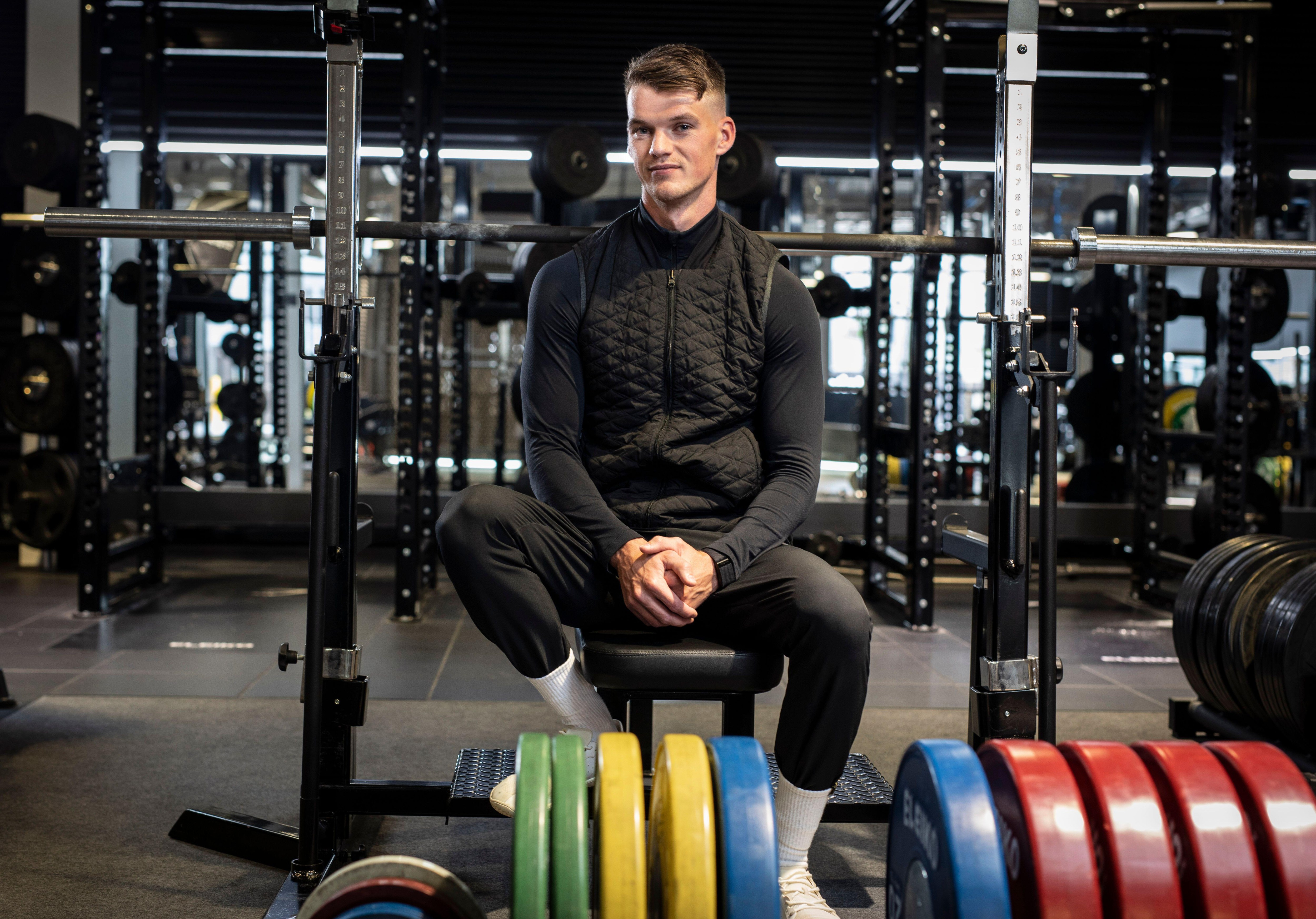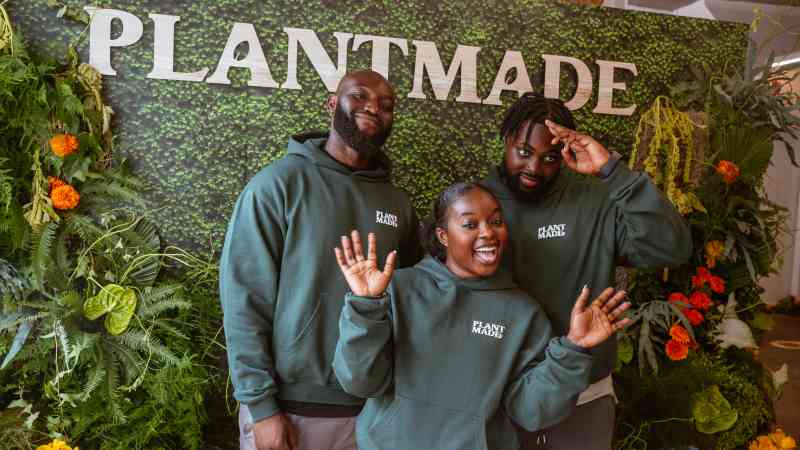Ama Amo-Agyei was celebrating £1 million of sales in her firm’s first year of trading by signing a five-year lease on a 6,000 sq ft warehouse when she got the “cease and desist” legal letter that ruined her day.
It became evident that another company owned the “Planted” trademark she had taken for the name of her range of skincare products, which use natural ingredients such as rosemary and lavender oil to help tackle problems such as thinning hair and hair loss.
After consulting lawyers, she found she had no choice but to rebrand. This meant stopping trading for three months from August 2021 while changing the name to Plantmade. Amo-Agyei said that pausing when momentum was so strong was devastating, with “hundreds of thousands of pounds” in lost sales. It also cost a further £25,000 in legal fees.
Since then, Amo-Agyei, 27, has rebuilt the business with her 18-strong team, which includes her fiancé Travis Hill, who is chief operations officer, and older brother Fred, chief financial officer. Sales of Plantmade’s range of 12 products nearly doubled to £5.3 million in the year to February, generating a slim pre-tax profit, helped by the soaring popularity of “Inches”, its flagship hair and beard oil.
The entrepreneur said she inherited her willingness to work hard from her parents, who moved to Bracknell in Berkshire from Ghana in the 1990s with her three older siblings. When they discovered that their teaching degrees did not carry the same weight in England, her mother and father juggled several part-time jobs alongside their studies to gain UK qualifications. But Amo-Agyei said this meant her parents were largely absent as she was growing up.
“In primary school, they worked so much that I was rarely picked up from school by them. So I’d have to wait for my brother-in-law or my uncle, and there was a whole period where I’d stay until nine o’clock with family friends.”
As active members of a church community, Amo-Agyei said her parents were “always helping someone” — buying gifts for newborns for young families and offering people a place to stay. Inspired by their actions, she set her sights on a career helping others as a psychologist, eventually taking the subject at Coventry University. However, with her parents unable to support her financially, she had to combine her studies with working long hours in hospitality at the nearby Ricoh Arena, home to Coventry City FC, to make ends meet. “My student loan covered my accommodation and that was it,” she said. “So I had to work from year one and it sometimes meant skipping uni just to [afford to] live.”
By her final year, the juggle was taking its toll on her mental health. Then her brother Fred gave her a copy of a book he was reading: Rich Dad Poor Dad by Robert Kiyosaki. It introduced her to the notion of entrepreneurship. “There were no examples of it around me. It was built into our culture that you go to school, go to university, get a good job and build a family. So reading this book and discovering you can be a business owner, an entrepreneur, an investor … It suddenly clicked that there were options.”
Not wanting to disappoint her parents by abandoning her degree, she instead started to befriend people on campus who were trying to start and grow businesses — doing everything from helping them sell T-shirts to managing their social media accounts. “I just wanted to see if I had any chops in this,” said Amo-Agyei.

When she graduated in 2018, she started work as a social media and marketing consultant for small businesses, while at the same time exploring some of her own ideas. However, she found the feast or famine of freelance life stressful and, after moving back to the family home in Bracknell, took a recruitment job in Reading.
But the role was difficult and, despite trying her best, Amo-Agyei struggled to hit her targets — not helped, she said, by an unsupportive boss. She started having panic attacks and was signed off work by a doctor for a week. When she returned, she was fired. “Honestly, it was a relief. I always felt like God made that decision for me, because my pride had meant I didn’t want to feel like a quitter.”
Two weeks later, the country went into lockdown — and the idea for Plantmade was born almost by accident. The stress involved with Amo-Agyei’s recruitment job had made her hair fall out, so she had been researching natural remedies online and mixing them up. “It actually worked — within a few weeks, I was starting to see progress. I was documenting it on my Instagram Stories and people started asking what I was using.”
She told her followers which ingredients she had combined, but most said it was “too much work” and asked Amo-Agyei to produce the end product for them. She made a batch of 50 bottles priced at £9.99 each and quickly sold out, before making another batch she sold for £15.99. The pricing was one of the hardest things to get right, she admitted. The same 100ml bottle now costs £35.
Encouraged by the appetite for the first couple of batches, as well as the growing popularity of wellness brands during the pandemic, in June 2020 Amo-Agyei decided “to take a leap” and launch the business. She used the £1,000 profit from the first 100 bottles to invest in more ingredients, packaging and basic branding, and for the first 12 months the business “soared”. It had just hit £1 million in sales, partially thanks to Amo-Agyei’s knack for sharing her journey on social media, when she received the legal warning in June 2021. She had been in a meeting with a team member when her mother handed her the “large” envelope containing the cease and desist order. “I just couldn’t compute what I was reading,” she said.
After the three-month period needed to rebrand and reset, Plantmade rebounded strongly. More recently, however, trading has become tougher, with Amo-Agyei describing the past 12 months as the “hardest yet” as consumer spending online has slowed. She has had to find new ways to reach customers, experimenting with pop-up shops, and is now considering taking on retail partnerships. “It’s about working out who aligns in terms of purpose and price-point,” said Amo-Agyei, adding that Plantmade’s higher prices would make the product too premium for some of the larger grocers.
Also on the horizon is the possibility of raising external investment. The firm has been using its own resources since it began four years ago, said Amo-Agyei, who owns Plantmade outright. She wants to invest more in her senior team, bringing in fresh skills in product development, which she has led since the start. How has a psychology graduate managed to formulate hair products? “I’m just a nerd, really,” she laughed.
“I read science papers for breakfast. And there are lots of formulations online, but I’ve tweaked them, and then it’s trial and error. There are some formulas that have taken months and months to complete, and then there are what we call ‘one and dones’ where we try out a formula and it’s perfect.”

High Five
My heroes … are Ben Francis [co-founder of Gymshark] and George Heaton from [the clothing brand] Represent. I love founders who are documenting growing their businesses; I just sit and watch for hours and hours, to learn but also to be inspired. Ben is such a light for UK entrepreneurship.
My best decision … was to work with my brother and my fiancé. I know people say “don’t work with family,” but the firm has been the best thing ever to build together, and I’ve had them to lean on in good times and bad.
My worst decision … was not to be on top of trademark law. I should have checked that no one had the Planted trademark at the very beginning, but I just didn’t know. We lost so much momentum when we had to rebrand.
Funniest moment … was having to go on jury duty for two weeks just as we were in the middle of rebranding. The timing couldn’t have been worse and I tried to contest it, but I was told I had to do it. I came up with Plantmade one morning as I was waiting to go into court.
Best business tip … would be to not hire too fast or too slow. Your team is your business. Hiring too many people just burns money; hiring too late means you’re burning yourself out.
